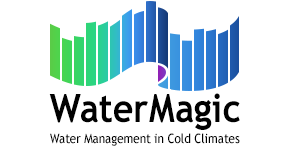Partner Universities
Qingdao Technological University, China
Hokkaido University, Japan
University of British Columbia, Canada
Seoul National University, South Korea
University of Washington, USA
The University Centre in Svalbard, Norway
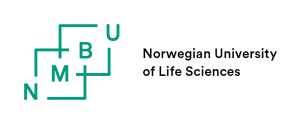 The Norwegian University of Life Sciences (Norway)
The Norwegian University of Life Sciences (Norway)
The Norwegian University of Life Sciences (NMBU) was established in 1859 as an agricultural school and as a scientific university college since 1897. NMBU is comprised of 8 departments and works closely with 5 centers on campus. NMBUs main specialization areas are biology, environment, food, land use and natural resource management. Of the 1160 University staff, more than half hold scientific positions. 4420 bachelor and master students and 447 PhD students.
NMBU will be the contract partner with SIU and shall be responsible for the physical and financial progress of the project. IiN coordinator Prof Ratnaweera will be the academic Scientific Coordinator of the project. Prof Ratnaweera has successfully completed a networking project on university collaboration in Eurasia (SIU CPEA 2011-10002) and the Scientific Coordinator of two large-scale NORAD-NORHED projects in Asia and Africa (www.wasoprojects.org). He brings the project management skills relevant to SIU’s higher education & research projects.
NMBU has its own lab & pilot plants and has access to full-scale water & wastewater treatment plants (W&WWTP), and Prof. Ratnaweera leads the Innovation of Clean Water Norway (www.cleanwater.no) hub formed of 60 innovative SMEs from the water industry. They will contribute to enhancing and sharing dialogues and experience with SMEs and end-users. NMBU will bring in the research knowledge on improvement of coagulation processes, decentralised systems as well as holistic optimisation of wastewater systems for W&WWT in Cold Climates.
Read more about the Norwegian University of Life Sciences: www.nmbu.no
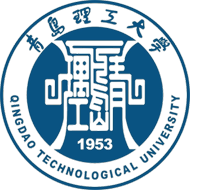 Qingdao Technological University – QTU (China)
Qingdao Technological University – QTU (China)
Qingdao Technological University offers 59 undergraduate majors. It can grant master degrees in 59 academic disciplines and 9 engineering Master’s programs. It also grants PhD degrees in 7 academic disciplines and 2 post-doctoral mobile research stations. Currently, the number of academic staff is 2251 and number of students is 28910.
Qingdao Technological University – QTech, China, is the leading university on W&WWT in the Shandon province. They are involved in an Erasmus+ project together with NMBU highlighting educational collaboration on conventional W&WWT, but it lacks the emphasis on Cold Climate / Climate Changes. QTech will bring in the organisational experience from the Erasmus+ project and knowledge, and access to the Chinese higher education and research system, where a majority of universities has Cold Climate / Climate Change challenges. The Coordinator Prof Xuejun Bi will contribute with a concept to increase the biological treatment process performance in winters to summer levels using enzyme engineering. QTech has lab and pilot facilities and access to several full-scale treatment plants to carry out research. QTech will host a WaterMagic workshop, receive a student batch and assist IiN in organisational matters.
Read more about the Qingdao Technological University: www.qtech.edu.cn
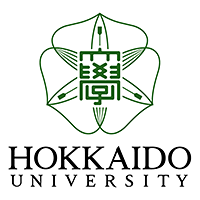 Hokkaido University – HU (Japan)
Hokkaido University – HU (Japan)
The Graduate School of Engineering is the partner in Water Magic and has the teaching and research responsibility related to W&WWT. HU has a specialised Institute of Low Temperature Sciences relevant for the project’s thematic areas. Associate Prof. Katsuki Kimura will be coordinating the involvement from Hokkaido University, and has teaching responsibilities in W&WWT. He also works with membrane fouling energy saving in membrane processes, which are highly relevant to both to the Cold Climates and adapting to Climate Change challenges. The research group has advanced labs and pilot activities, access to W&WWTPs and levels of collaboration with industries. HU will host a workshop and receive students.
Read more about the Graduate School of Engineering at Hokkaido University: www.eng.hokudai.ac.jp
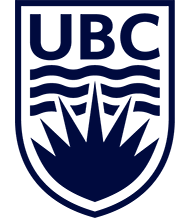 University of British Columbia – UBC (Canada)
University of British Columbia – UBC (Canada)
University of British Columbia is a partner of the project. UBC has a strong research group working on W&WWT. The UBC Coordinator Prof. Pierre Bérubé is the Director of UBC/UNBC Environmental Engineering Program, with long standing relationships with the industry. Prof. Bérubé has teaching responsibility in four relevant MSc courses and focuses on waste management and optimising membrane processes. The research group at UBC has advanced labs and pilot plant facilities, access to W&WWTP’s and levels of collaboration with industries. UBC will host a workshop and receive a team of students.
Read more about the research group at University of British Columbia: membrane.civil.ubc.ca
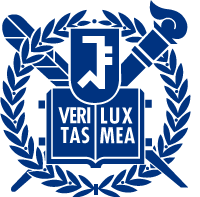 Seoul National University – SNU (South Korea)
Seoul National University – SNU (South Korea)
Seoul National University is a partner of the project. Prof Chung-hak Lee is the Coordinator of SNUs activities and also the head of the Water, Environment and Membrane Technology (WEMT) lab. Prof Lee created the Quorum Quenching concept in membrane bio reactors (MBR), which helps avoid biofouling. The method remains highly relevant for Cold Climates as MBR is becoming increasingly popular in cold climates. He also works with energy efficient membrane processes. WEMT has advanced labs and pilot activities, access to W&WWTP’s and levels of collaboration with industries. SNU will host a workshop and receive students.
Read more about the WEMT at Seoul National University: wemt.snu.ac.kr
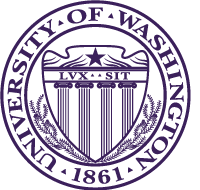 University of Washington – UW (USA)
University of Washington – UW (USA)
University of Washington is a partner of the project. Prof Gregory Korshin from the Dept. of Civil and Environmental Engineering is the Coordinator. UW is coordinating the Valle fellowship program since its establishment in 1980, which promotes the mobility between US and Nordic students and researchers. The Norwegian partners of the project NMBU and UNIS have not so far utilised the Valle program but have ambitions to use the collaboration with UW to promote student/staff exchanges through the program. UW will contribute to use the collaboration developed through this project to establishing a long-term mechanism for fellowships. Prof. Korshin’s research group will contribute with NOM removal, Disinfection by-products (DBPs) and water quality deterioration during transport, all which are crucially relevant for Cold Climates and Climate Changes. Prof Korshin’s research group has advanced labs and pilot activities, access to W&WWTPs and levels of collaboration with industries. UW will host a workshop and receive student fellowships.
Read more about the Department of Civil and Environmental Engineering at University of Washington: www.ce.washington.edu
Read more about Korshin’s research group at University of Washington: faculty.washington.edu/korshin
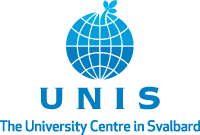 The University Centre in Svalbard – UNIS (Norway)
The University Centre in Svalbard – UNIS (Norway)
The University Centre in Svalbard (UNIS) is the world’s northernmost institution for higher education and research, located in Longyearbyen, Spitsbergen, Norway. Prof. Nils Roar Sælthun is attached to the Department of Arctic Technology, where several courses relate to water management in cold climates and impacts on climate change are in focus. There are no W&WWT engineering courses at UNIS at present, but the project will contribute with a solid foundation to initiate new courses. UNIS has unique experimental lab facilities to carry out specialised research, which will be a part of their contribution to joint research. UNIS will host a workshop.
Read more about The University Centre in Svalbard: www.unis.no
